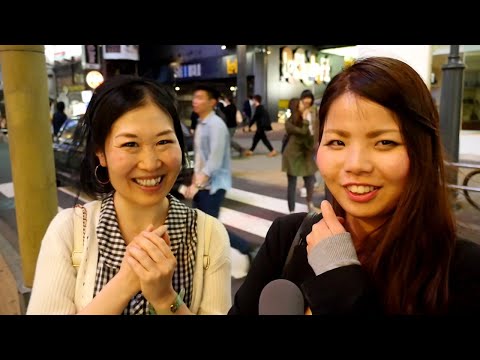This vlogger is by far the best I have seen for learning Japanese: That Japanese Man Yuta. He talks about serious topics, is well researched, and does Japanese on-the- street interviews about them with subtitles in English. Really great.
I thought (for one horrible moment) that you were referring to Yutaka ![]()
Yes, I had seen a little bit of it too
Thanks for sharing and link URL
Oh thank you so much for that remark!
I had such a giggle when I read your post.
I still cannot stop giggling.
I thought exactly the same thing!!!
I can’t give you a rose much as I would dearly like to because I don’t want to indirectly offend someone I quite like but who can at times flood the forum with a never-ending number of posts.
I’ll have to give you two roses next time ![]()
Thanks though for making me laugh so much.
It’s the second time in two weeks that I’ve burst into peals of laughter.
“…It’s the second time in two weeks that I’ve burst into peals of laughter…”
When was the first time? ![]()
I don’t know about his lessons but his youtube is not the best one to learn japanese, it is more about learning a little bit of Japan.
Ask Japanese also interviews Japaneses in the street.
Japanese Ammo with Misa for japanese lessons
More lessons with Nihongo no mori.
In french Kanji Link
To learn more about Japan
Inernationally ME
“I had such a giggle when I read your post.
I still cannot stop giggling.”
I could have wrote the same thing, if my English was good enough.
I wonder what is up to - maybe the calm before the storm!
It was 10 days ago and also involved jumping to the wrong conclusion.
Now I can give you a rose for making me laugh ![]()
You will get there!
Don’t worry ![]()
You are already using expressions such as “the calm before the storm”
It’s just a matter of time.
Are you also learning Swedish at the same time as English?
Good on you ![]()
Thank you for your advise, @Maria2!
In the past I was worried, very worried indeed, then I realized that it didn’t help.
The day when my English level will be equal to my Swedish one (fluency) then that’ll be really something to celebrate!
“Don’t worry :-)” to everyone learning languages - or whatever it’is for that matter.
I think you can learn about Japan well while learning Japanese from Yuta’s videos. He provides subtitles which you can ignore if you want and use when necessary. Video lessons like “Ok today we are going to learn 10 things NOT to say etc” are not interesting for me personally.
Dong work for Yuda, Dong, Dong
He said Dong was Wong,
'N Wong was Kong
'N Dong work for Yuda,
N John was wrong
I haven’t watched his video, but I guess “Yuta” is “Yūta” in Japanese( or Romaji ). There should be a macron over the letter “u”.
Incidentally, Tokyo(東京) is Tōkyō or Toukyou in Romaji.
@Mria2
Shall I get you a swim ring? In case you are suffering from floodphobia.
(I am, of course, joking about your comment.)
Technically yeah, but you’ll find the macron isn’t really used much in English spellings of Japanese names/commonly known nouns. I don’t think it’s really necessary here.
As you may know, Tokyo is essentially never written as Toukyou. It’s Tōkyō in Hepburn or Tôkyô in Kunrei-shiki.
"The macron isn’t really used much in English spellings of Japanese names/commonly known nouns. "
I agree. Thank you for your comment.
Tokyo as well as Tofu is an English word and its pronunciation is different from Tōkyō(to-o-kyo-o). I wonder how native of speakers of English tend to pronounce “to” in Tokyo and “to” in Kyoto(京都, Kyōto) .
Incidentally, we tend to pronounce the English word net “netto”.
Yeah, in English it sounds more like トキョー or something like that. I think there may be some subtle phonetic differences with the “t” sound as well.
“Kyoto” can vary. I think most people say キ↗️ヨ↘️ト (Kiyoto) my politics professor in college used to say カイヨト (Kaiyoto) haha.
Also we accent the first part of the word (ト↘️キョー) whereas standard Japanese rises after と (と↗️うきょう). For Kyoto, we accent the “yo” sound while Japanese falls after きょ (きょ↘️うと)
ありがとう!!!
